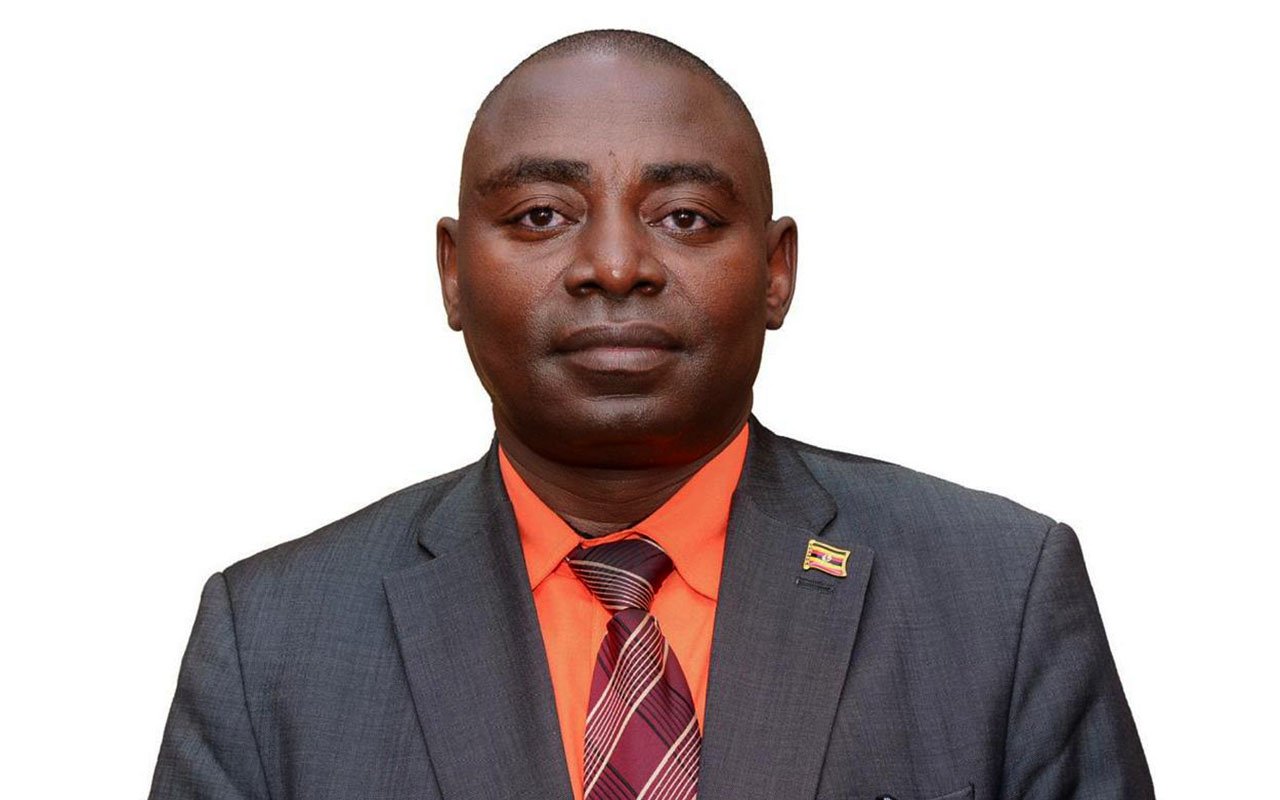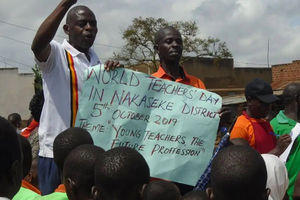
Mr Filbert Baguma, Unatu.
A proposal by Uganda’s Prime Minister that children of heads of government schools study at those institutions has drawn the ire of teachers and other stakeholders.
The Education ministry, which would be expected to originate and drive such agenda, said it was in the dark about the policy that Ms Robinah Nabbanja said was in the offing.
While delivering a keynote address to teachers at the Oliver Tambo School of Leadership and Pan African Centre of Excellence in Kaweweta, Nakaseke District, on Saturday last week, the premier noted: “In order to stop teacher absenteeism and improve the quality of education, the head teachers’ children must be in that school. We will see if you will allow your children not to receive a quality education. The policy is coming.”
She added: “You have left our children in government schools to ‘whom it may concern’, while you are busy with your own business. You cannot blame the government.”
The staging post for the pronouncement was unusual – an army facility named after South African anti-apartheid icon Reginald Oliver Kaizana Tambo – and without reference to Cabinet.
As Prime Minister, Ms Nabbanja, who is the Kakumiro District Woman representative in the 11th Parliament, is the coordinator of all government ministries and sits at the heart of executive policy initiation, discourse and execution.
Her proclamation of what potentially is a game-changing policy on the eve of start of new school term on Monday, roiled stakeholders and Education ministry’s own disclosure that it knew nothing about the plan opened decision-making in government to tighter scrutiny.
“We are not aware of this proposed policy, but if it is decided by Cabinet, we shall receive information from the Minister of Education (Janet Museveni), who communicates with us. For now, I cannot comment further on it until I understand the spirit under which it is being proposed,” Dr Denis Mugimba, the ministry spokesperson, said.

Peter Walubiri, senior lawyer.
Senior lawyer and Opposition politician Peter Walubiri on May 28 seized on the accounts to christen such planned compulsion “illegal, unconstitutional and an infringement on freedom of choice” by head teachers on education of their children.
“This is a broad and lousy policy which cannot come from a serious leader. People should have the liberty to choose particular schools for their children because they have their own reasons,” said Mr Walubiri.
He added: “A teacher is not a slave. He or she should be paid well to deliver results instead of having their family controlled.”
Our attempts over the past three days to get the prime minister to respond to the avalanche of criticism triggered by her proposal were unsuccessful.
An aide, without providing specifics, said the premier was unavailable to comment until perhaps later in the week.
A source close to Ms Nabbanja said nothing had been put in black-and-white regarding what she said on Saturday was a policy in the offing, leaving open the question of whether the idea would gain traction among policymakers in government in the first place.

Prof Sabiti Makara, lecturer.
Prof Sabiti Makara, a political science scholar and lecturer, said the proposal was doomed on arrival and the premier should pursue government policy reforms, better educational infrastructure and remuneration of teachers to jumpstart flailing standards at public schools.
Outside of government, Uwezo, an independent not-for-profit organisation dedicated to promotion of quality education for all in Uganda, noted that a possible good in such a policy is discounted by planned selective application.
“Surely, how do you enforce that, especially when their own children do not study in those schools?” said Uwezo Executive Director Mary Goretti Nakabugo, referring to bureaucrats’ preference to enlist their children and dependents at high-end private institutions, in-country and abroad, deemed to offer superior services.
She added: “Let us start with ministers and Members of Parliament. Are their children in UPE or Universal Secondary Education [schools]? So, why enforce it only on head teachers?”
Ms Nakabugo, like Prof Makara, questioned whether PM Nabbanja’s children studied, or study, at government schools.
In March, Ms Nabbanja announced that her daughter, Fatinah Nakasumba, had given birth at Mulago Specialised Women and Neonatal Hospital, a private wing at the government’s national referral hospital in Kampala.
Her announcement came in the wake of a number of high-level government officials being flown for treatment out of the country, mainly to neighbouring Kenya and far-flung India, Turkey, and the US.
Without taking sides, Mr Filbert Baguma, the secretary general of the Uganda Teacher’s Union (Unatu), said policies of the type fronted by the prime minister should cover more than the education sector.
According to him, while the government boasts of investing heavily in social services, it was ironic that notables in public service take flight to other countries for medical care.
He said: “This should not only apply to education, but also to medical facilities. All these officials should stop being flown out of the country and stop convincing Ugandans that they have improved health and education.”
Head teachers interviewed for this article voiced outright opposition to the plan.

Ms Deborah Basekanakyo. head teachers’ boss
Ms Deborah Basekanakyo, the president of the Association of Secondary Schools Head teachers of Uganda, which brings together head teachers in government employment, discounted the proposal as addressing a “minor issue” insufficient to plug education quality gaps.
“An education system has a number of key stakeholders, not just the head teacher. What is urgent for our country is for every stakeholder to realise their critical role and act on it without focusing on minor issues that don’t guarantee the quality of education that we aspire to see,” she said.
Ms Oliver Nambi, the head teacher of Busoga High School, said the proposal was ineffective since some head teachers have no children and others have older and out-of-school children or dependents.
“I do not think children of head teacher should study in the schools they head because those children will become a problem to the system. The teachers will be scared to discipline the child of their bosses,” Ms Nambi argued.
Ms Agnes Kabarisa, the head teacher of Nakivubo Blue Primary School in Kampala, said children do not belong to the government and parents should have the freedom to choose where their children enrol for formal education.
“It is a parent’s choice to select a school for their child. Some head teachers have their children in the schools they head, while others have their reasons for enrolling their children elsewhere. The government should engage in dialogue with us rather than imposing such policies,” she argued.
In the capital, Kampala, where many schools perform well, she said staff voluntarily enrol children to study where they work.
According to Mr Edward Kanonya, the head of Kololo Secondary School in Kampala, the premier may in the policy proposal have good intentions, but problems afflicting education are wide-ranging.
“If it’s intentional, it would be acceptable provided that compulsion is replaced with encouragement,” he said, adding, “[The] government should consider other areas beyond controlling the head teacher. We are not the only players in ensuring the quality of education, but other factors such as teacher motivation and funding of the education sector are equally important.”
Rwanda example
Rwanda is one of the countries that have invested heavily in its public education, something that has attracted high enrollment and challenged the dominance of private educational institutions.
According to the Unicef report, in 2023/2024, the budgetary allocation for the education sector in Rwanda was 15.6 percent of the national budget, the first time it has met the internationally recommended benchmark range of 15-20 percent of public expenditure.
The report further indicated that Rwanda has made great progress in securing access to basic education.
What they say...
Peter Walubiri, senior lawyer
If I am heading a UPE [Universal Primary Education] school without proper facilities such as classrooms, latrines, and books, why should my child suffer?
Prof Sabiti Makara, lecturer
I am a professor at Kabale University; am I obliged to bring my children here? I assume even the children of Nabbanja herself are in top schools.
Filbert Baguma, Unatu
Now that policies go through Cabinet before they are passed, we need ministers to take their children to these schools. Head teachers and others will follow.
Deborah Basekanakyo. head teachers’ boss
What is urgent is for every stakeholder to realise their critical role and act on it without focusing on minor issues that don’t guarantee the quality of education.

